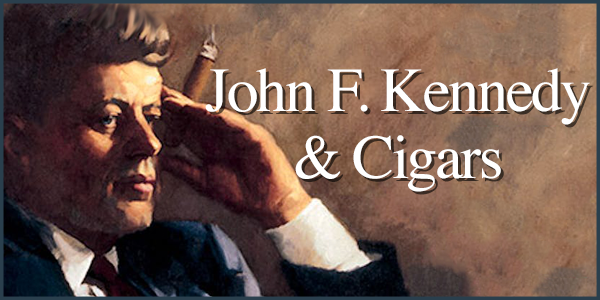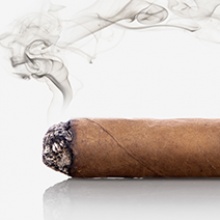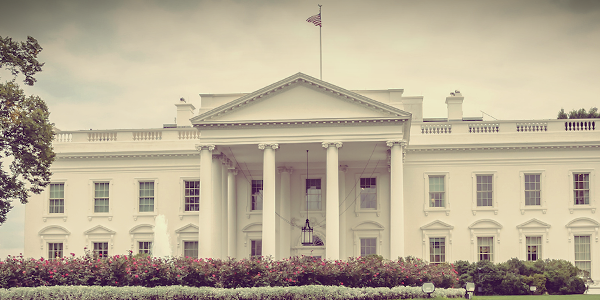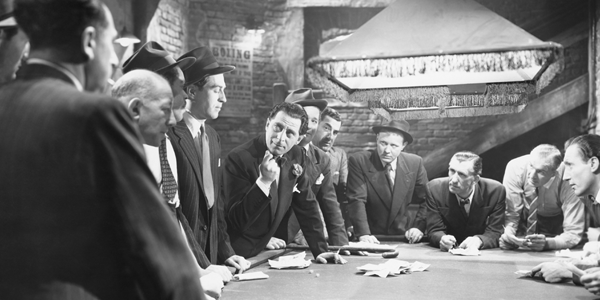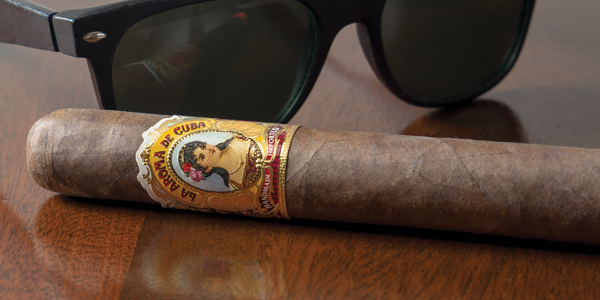John F. Kennedy & Cigars
His was a life cut short by an assassin’s bullet. But before he died in 1963, President John F. Kennedy had become the hope of a generation. He was young and handsome and a war hero. Early in his presidency, Kennedy had to confront growing Soviet influence in Cuba and what was seen as Fidel Castro’s radicalization. How the president addressed that leads us to one of the most interesting cigar stories ever.
John F. Kennedy’s Favorite Cigar
Kennedy’s favorite cigar was the machine-made Cuban H. Upmann Petit Corona. Kennedy was introduced to cigars as a young man, sharing them with his father, Ambassador Joseph P. Kennedy. Once he got to the White House, after defeating Richard Nixon in the 1960 election, Cuba landed on Kennedy’s desk in the Oval Office.
The Bay of Pigs Invasion
If you’re not keen on history, or maybe didn’t pay much attention in school, or maybe you’re just too young, here’s a quick reminder of why Cuban cigars cannot be legally obtained in the United States. It goes back to 1961. Well, really, to 1959 and the successful Castro revolution in Cuba.
Some analysts believe Fidel Castro was a stone-cold Communist all along. Others posit that he was a firm nationalist and, at least for a time, wanted to establish good relations with the United States. Kennedy’s predecessor, President Dwight D. Eisenhower, wasn’t buying what Castro was selling. In 1960, Eisenhower barred American companies from selling oil to Cuba. Castro then nationalized the three American oil refineries on the island. Relations between the two countries continued to deteriorate and, to oversimplify, the US agreed to back a Cuban exile effort to remove the Castro regime by force. The Bay of Pigs invasion was launched. It failed miserably. Castro became stronger and, some argue, was driven more quickly into the arms of the Soviet Union. Well, that didn’t help cigar lovers, now did it?
Embargo
So, the US responded by putting into effect restrictions on trade with Cuba. A partial embargo had been in effect since Castro had taken power, and now Kennedy expanded it. But before the president signed the order….
Kennedy Stocks Up on Cuban Cigars
Late one afternoon in February of 1962, President Kennedy called his close aide and press secretary, Pierre Salinger, into the Oval Office. Salinger, a longtime cigar-smoker, recounted the tale in Cigar Aficionado.
"Pierre, I need some help," Kennedy said solemnly.
"I'll be glad to do anything I can Mr. President," Salinger replied.
"I need a lot of cigars."
"How many, Mr. President?"
"About 1,000 Petit Upmanns."
“I shuddered a bit, although I kept my reaction to myself. ‘And when do you need them, Mr. President?’"
"Tomorrow morning."
“I walked out of the office wondering if I would succeed,” Salinger wrote. “But since I was now a solid Cuban cigar smoker, I knew a lot of stores, and I worked on the problem into the evening.”
“The next morning, [February 7, 1962] I walked into my White House office at about 8 a.m., and the direct line from the President's office was already ringing. He asked me to come in immediately.”
"’How did you do Pierre?’ Kennedy asked, as I walked through the door.”
"Very well, I answered. In fact, I'd gotten 1,200 cigars. Kennedy smiled and opened up his desk. He took out a long paper which he immediately signed. It was the decree banning all Cuban products from the United States. Cuban cigars were now illegal in our country.”
Kennedy As Cigar Smoker
Despite his having hoarded more than 1,000 Cuban cigars, Kennedy was not Churchillian in his cigar smoking. Far from it. His aides recalled that whenever he was presented with a Cuban cigar, Kennedy was more interested in how it was obtained than in smoking it.
“It wasn’t the cigar,” one friend said. “It was the intrigue.”
Kennedy was clearly influenced by the image of his father lighting up Cuban cigars after meals and lecturing on the failures of government policies, most of which the elder Kennedy saw as a challenge to his business interests.
John F. Kennedy took up the cigar, but never embraced it fully. [Less well-known is that John’s brother, Bobby, also enjoyed Cuban cigars.] As aides reported, Kennedy would choose a smallish cigar, puff it for a bit, then set it down, “unfinished and forgotten” and return to an engrossing conversation.
What Kennedy’s cigar smoking did do was make it fashionable in Washington circles at the time to light up a good cigar (a practice which is still popular today – smoking in Congress was reintroduced in 2023). Cigars became an essential component at dinner parties. Of course, the men would light up and go into one room while the women would depart for a separate space.

